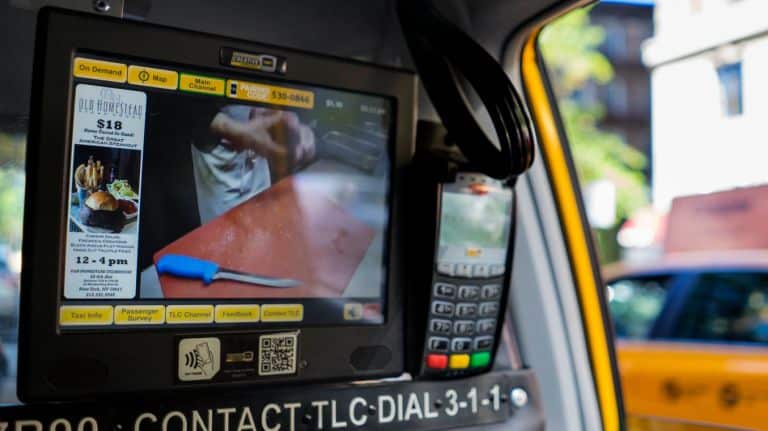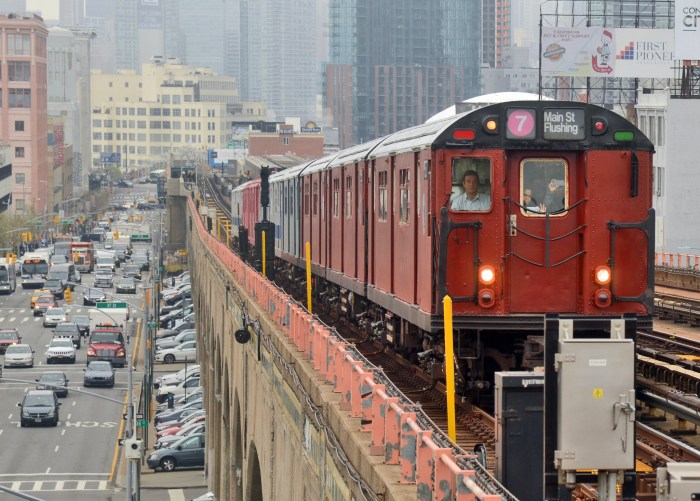The New York City Council approved a bill Wednesday permitting video advertising in the back of Uber and Lyft vehicles, allowing drivers to make some extra money but bringing the specter of notorious Taxi TV to the for-hire vehicle industry.
The bill, Intro 1139-A, allows for-hire vehicle (FHV) drivers to display video ads on tablets in the back of their vehicle, and stipulates they get 25% of the revenue from each ad played. Passengers would still be able to turn off the tablet and control its volume.
“The rideshare sector is not only a huge opportunity for working-class New Yorkers, but it is also a key part of our City’s economy, transit systems, and is an essential part of so many New Yorkers’ day-to-day lives,” said the bill’s main sponsor, Bronx Democrat Amanda Farías. “This bill puts New York City rideshare drivers first and I am incredibly proud to have gotten this done for drivers.”
Ad revenue is not the only aspect of the bill Farías hopes will put more money in drivers’ pockets. The screens can also be used to remind riders to leave a tip. According to Lyft, drivers with ad screens earn 13% more tips on average than those who don’t.
“This opportunity could put thousands of extra dollars in drivers’ pockets next year,” said Brendan Sexton, head of the Independent Drivers Guild, a union for local FHV drivers. “That’s a Christmas bonus that will make a meaningful difference in the lives of families who desperately need it.”
Despite the money it could put in drivers’ pockets, it’s anyone’s guess if ads will be welcomed in the back of ad-free Ubers and Lyfts.
The Taxi & Limousine Commission began installing Taxi TV in yellow cabs in 2007 to fund the installation of credit card readers. Since the get-go, the reception has not been positive, with riders and even drivers complaining that the ads were repetitive and annoying in a confined space.
So abhorred has Taxi TV been that the TLC voted to scrap it in 2015 and pilot a “less invasive” technology to replace it, though the service has continued its assault on the senses in the intervening years.



































